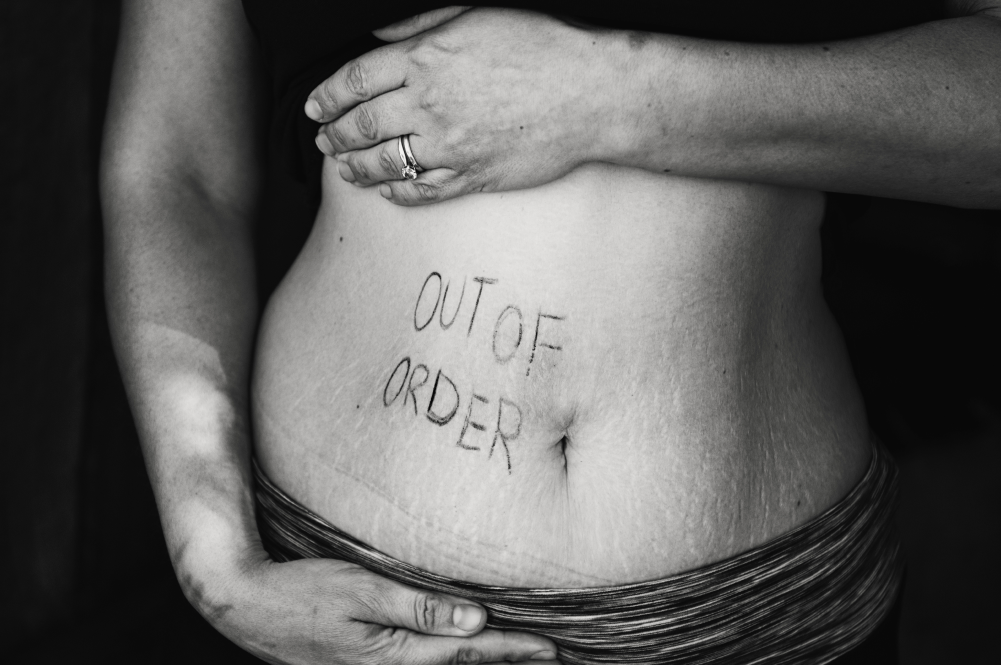Living with Irritable Bowel Syndrome (IBS) can be a real challenge. Every individual's experience is unique, and it often takes time to figure out what the triggers are for your IBS attacks.
What often goes unnoticed is the effect of diet on IBS, and how it can cause flare-ups without you knowing. That’s why understanding which foods to avoid and which ones are safe to eat can make all the difference in managing symptoms.

In this blog post, we’ll explore some of the major food items that may cause an attack and how they affect different digestive systems.
We'll also offer advice on making healthy substitutions so you don't have to skimp out on enjoying tasty meals without compromising gut health or triggering flare-ups!
Struggling with IBS? Check out IBSupport from Gistive, the perfect supplement to cater to all your IBS woes, and provide the relief you really want!
Table of Contents
What Is IBS

IBS, or irritable bowel syndrome, is a pesky condition that many people suffer from. It is a disorder that affects the digestive tract and can cause a variety of symptoms, such as abdominal pain and discomfort.
While the exact causes of IBS are still unclear, many experts believe that processed foods can be a major contributor.
The severity of irritable bowel syndrome symptoms can vary from person to person, but for those who experience them regularly, it can be a frustrating and uncomfortable experience.
But fear not, with a bit of insight into the condition and some guidance on which foods to avoid, you can take steps to manage your IBS and alleviate your symptoms.
Some Common Irritable Bowel Syndrome (IBS) Symptoms
Living with irritable bowel syndrome (IBS) can be a real pain in the gut. While certain foods can make IBS symptoms worse, leading to uncomfortable bloating, abdominal pain, gas, and irregular bowel movements, other triggers can also cause IBS flare-ups.
According to the National Institute of Diabetes and Digestive and Kidney Diseases, some common IBS symptoms include abdominal pain, bloating, diarrhea or constipation, and urgency or a feeling of incomplete bowel movements.
Furthermore, the above study also classifies some of the foods that can trigger IBS flare ups, which are dairy products, cruciferous vegetables, alcohol, fatty foods, and foods containing soluble fiber among others.
It's important to remember that each person's IBS symptoms may differ and that what makes one person so uncomfortable may not have the same effect on another.
With the right management and lifestyle changes, you can find relief and reduce the severity of your IBS symptoms.
IBS Flare Ups - Foods That Might Trigger It

People with IBS often experience flare-ups triggered by certain foods. Understanding the potential triggers can help manage symptoms and improve overall well-being.
While trigger foods can vary from person to person, there are several common culprits to be aware of if you have IBS, and these have been mentioned below:
Dairy Products
Dairy products, such as milk, cheese, and yogurt, are known to be problematic for many individuals with IBS. These products contain lactose, a sugar that some people have difficulty digesting.
Consuming dairy can lead to bloating, gas, abdominal discomfort, and diarrhea in individuals with lactose intolerance. Experimenting with lactose-free alternatives or opting for non-dairy alternatives like almond or soy milk can help alleviate symptoms for those sensitive to lactose.
Insoluble Fiber
Insoluble fiber, found in foods like whole grains, fruits, and vegetables, can be challenging to digest for some individuals with IBS. While fiber is generally beneficial for digestive health, insoluble fiber can cause bloating, gas, and abdominal pain in certain individuals.
Moderation is key when it comes to fiber intake, and it may be helpful to identify specific high-fiber foods that trigger symptoms and adjust the diet accordingly.
Alcohol
Alcohol is another potential trigger for IBS flare-ups. Alcoholic beverages, particularly those high in fermentable sugars like fructose and sorbitol, can disrupt the digestive system and exacerbate IBS symptoms.
Alcohol can also stimulate the gut and increase intestinal motility, leading to diarrhea or abdominal discomfort. Reducing or eliminating alcohol consumption can help manage symptoms and improve overall gut health.
Chocolate
Chocolate, although beloved by many, can be a trigger for individuals with IBS. It contains caffeine and stimulants like theobromine, which can have a laxative effect on the digestive system.
Additionally, chocolate often contains high amounts of fat, which can be difficult to digest and may trigger symptoms such as bloating, cramping, and diarrhea. Moderation and monitoring personal tolerance are essential when enjoying chocolate to avoid IBS flare-ups.
Gluten
For individuals with gluten sensitivity or celiac disease, consuming gluten can lead to significant digestive issues and worsen IBS symptoms. Gluten is a protein found in wheat, barley, and rye, and it can cause inflammation and damage to the small intestine in those with gluten-related disorders.
Symptoms may include bloating, abdominal pain, diarrhea, and fatigue. Avoiding gluten-containing foods and opting for gluten-free alternatives can help alleviate symptoms and prevent flare-ups in susceptible individuals.
Processed Foods
Processed foods, such as fast food, pre-packaged snacks, and frozen meals, often contain additives, preservatives, and high levels of fat, which can trigger IBS symptoms. These foods are typically low in fiber and high in refined carbohydrates, which can disrupt digestion and lead to abdominal discomfort, and changes in bowel movements.
Choosing whole, unprocessed foods and cooking meals from scratch can be beneficial for managing IBS symptoms and promoting gut health.
Caffeinated Drinks
Caffeinated drinks, including coffee, tea, and certain sodas, can stimulate the digestive system and exacerbate IBS symptoms. Caffeine acts as a diuretic and can increase bowel movements, leading to diarrhea or abdominal cramping.
Additionally, caffeine can irritate the intestinal lining, causing discomfort and exacerbating other digestive issues. Reducing caffeine intake or opting for decaffeinated alternatives can help minimize IBS flare-ups.
Sweeteners
Certain sweeteners, such as artificial sweeteners like sorbitol, mannitol, and xylitol, are known to cause digestive distress and trigger symptoms in individuals with IBS. These sweeteners are commonly found in sugar-free gum, candies, and diet products. They can have a laxative effect, leading to diarrhea and abdominal discomfort.
Avoiding products containing these sweeteners and opting for natural sweeteners like stevia or small amounts of cane sugar can help manage symptoms.
Bottom Line
All in all, it is important to be aware of the foods that can trigger IBS attacks. From dairy and wheat products to oily and fried foods, certain types of food should be avoided if you are prone to IBS issues.
The best course of action would be to keep a diet diary so that any potentially gut-irritating foods can be identified. Doing this can help one better understand their triggers so that they are better informed on how food choices will impact their health.
Additionally, developing dietary plans with the expertise of a nutritionist or dietician may prove beneficial as well, as didactic nutritional therapy has been shown to have positive effects in relieving IBS symptoms.
Ultimately, try to achieve a low fodmap diet for optimal control of IBS symptoms, and for a more targeted approach, use gut health supplements, like IBSupport, that efficiently target IBS. With these tips and strategies, we should all be able to find out what works best for our individual needs and lead a healthier life.

